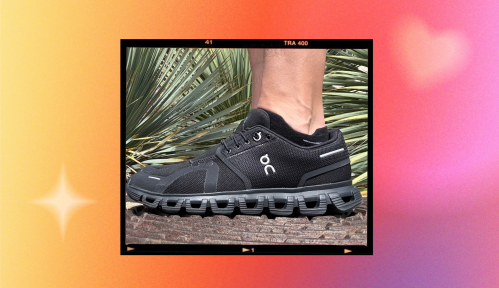Want to prevent pregnancy without taking the pill and dealing with the health risks it can present? (Hello, bloating.) There’s an app for that. Last year, Swedish nuclear physicist Elina Berglund’s app became the first in history to be approved as a form of birth control in the EU—and now, it’s making American history as the first app approved by the the US Food and Drug Administration (FDA) to be marketed as a method of contraception.
Natural Cycles—which uses an algorithm that takes data from your daily temperature checks to calculate the days you’re most fertile—was just one of the exciting new femtech innovations of last year (which included everything from next-gen vibrators and pelvic-floor strengtheners to reimagined menstrual products).
Users pay $10 a month (or $80 per year) for the app, which spells out when it’s safe to have unprotected sex without conceiving. And if that seems downright scary, there’s a whole lot of evidence that says otherwise.
Over the course of a year of independent clinical trials, the app proved to be 99 percent effective, which is the exact rate of efficacy an IUDs and birth control pills when those are used perfectly, according to Planned Parenthood.
Independent clinical studies involving 22,785 women found that “perfect use” of Natural Cycles (which refers to using the app exactly as instructed) had a failure rate of only 1 percent; while “typical use” (which accounts for the users’ occasional misuse, or ignoring the app’s recommendation to have only protected sex on certain days) bumped that number up to 6.8 percent. Over the course of a year, the app proved to be 99 percent effective, which is the exact rate of efficacy as an IUD and birth control pills when used perfectly, according to Planned Parenthood. Plus, this info points to Natural Cycles being 1 percent more effective in preventing pregnancy than perfect use of a condom.
What’s even more interesting is it was still 93 percent effective when users weren’t as careful—2 percent more than the effectiveness of the pill and 8 percent more than that of a condom under the same circumstances. However, it’s important to note that there have been cases in the EU of people becoming pregnant despite using the app: SVT, a Swedish broadcaster, reported that 37 out of 668 women who underwent an abortion at a Stockholm hospital between September 2017 and the end of the year say they used Natural Cycles as a contraceptive tool. Since the hospital didn’t provide specifics on whether or not all of the women used the app correctly though, according to Business Insider, this information can’t really be viewed as a fair reflection of the app’s ability.
All this is to say that if you keep up with your daily temperature checks and always use a condom on “red” days (AKA the days you’re most fertile) you might just be able to prevent getting pregnant without depending on a hormone-packed pill.
Originally published September 19, 2017; updated August 13, 2018 with additional reporting by Kells McPhillips.
Is your sexual connection with your new partner healthy? Here’s how to tell. And in case you were wondering, here’s how much sex you need to have to reap the health benefits.
Sign Up for Our Daily Newsletter
Get all the latest in wellness, trends, food, fitness, beauty, and more delivered right to your inbox.
Got it, you've been added to our email list.











